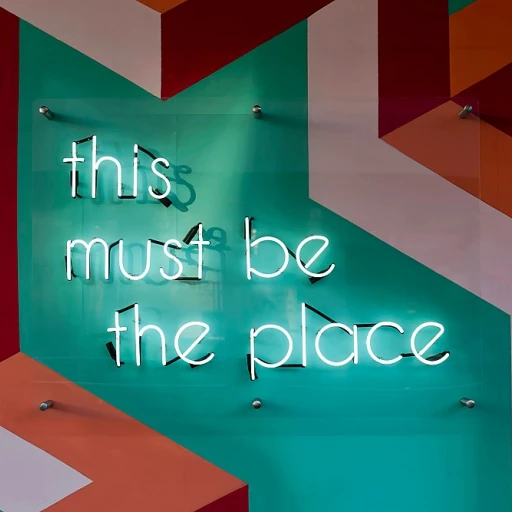
Understanding the impact of appreciation at work
The Power of Simple Recognition
In today’s workplace, genuine appreciation can make a world of difference. When employees receive a thank you card or an appreciation note, it’s more than just a gesture. It’s a signal that their hard work, commitment, and dedication are seen and valued. This recognition, whether through appreciation cards, thank notes, or even small appreciation gifts, can boost morale and foster a positive attitude across the team.
Employee appreciation isn’t just about saying “thank you.” It’s about building a culture where employees feel respected and motivated. Studies have shown that regular employee recognition leads to higher engagement, better work ethic, and improved retention rates. For example, a company that consistently uses thank cards and appreciation messages often sees employees going the extra mile, not just for the price of a card, but because they feel genuinely valued.
Why Recognition Matters for Teams
- Appreciation cards and thank notes help reinforce positive behaviors and work dedication.
- Employees who feel recognized are more likely to stay committed to the company’s success.
- Thank cards can be a simple, cost-effective way for small businesses to show gratitude.
- Recognition strengthens team bonds, making the workplace more collaborative and supportive.
When a team leader takes the time to express gratitude, it sets an example for others. This kind of leadership is essential for building a healthy workplace culture. If you’re interested in learning more about the real responsibilities of a team leader and how they can impact employee appreciation, explore this guide on team leadership responsibilities.
Ultimately, the act of giving a thank you card or appreciation card is about more than just the card itself. It’s about recognizing the people behind the work, their dedication, and their positive impact on the company’s success. This simple act can be the foundation for a thriving, appreciative workplace culture.
The link between gratitude and work life balance
The Power of Gratitude in Shaping Work-Life Harmony
Showing appreciation at work is more than just a nice gesture. When a company recognizes an employee’s hard work and commitment, it can make a real difference in how employees feel about their job and their overall well-being. Expressing gratitude, whether through thank cards, appreciation notes, or even small appreciation gifts, helps foster a positive attitude and a culture of recognition. Gratitude is closely linked to work-life balance. When employees receive appreciation cards or thank notes for their dedication, they often feel more valued and motivated. This sense of recognition can reduce stress and increase job satisfaction, making it easier for employees to maintain a healthy balance between their professional and personal lives. In fact, being recognized for hard work—such as through an employee appreciation card or a thank you card for a work anniversary—can boost morale and encourage a stronger work ethic.- Appreciation messages and thank cards remind employees that their efforts matter.
- Recognition helps build trust and loyalty within the team.
- Positive feedback can inspire greater commitment and dedication to company success.
When and how to give a thank you card for employee
Choosing the Right Moment for Appreciation
Recognizing employees at the right time can make a significant difference in how your appreciation is received. While there’s no universal rule, some moments naturally lend themselves to giving thank cards or appreciation notes. For example, after a team completes a challenging project, or when an employee demonstrates exceptional work ethic or commitment, a thank you card can reinforce positive behavior and boost morale. Work anniversaries, successful launches, or even small business milestones are also perfect opportunities to express gratitude.
How to Make Your Thank You Card Meaningful
When crafting an employee thank card, authenticity matters. Generic messages can feel insincere, so take the time to mention specific examples of dedication, positive attitude, or hard work. Use appreciation cards or thank notes to highlight how the employee’s actions contributed to the company’s success or improved the workplace culture. If you’re sending cards envelopes, consider adding a handwritten note for a personal touch. This small gesture can make employees feel truly valued and recognized for their commitment.
- Be specific: Mention what you are thanking the employee for, such as their work dedication or a recent achievement.
- Be timely: Give the appreciation card soon after the event or accomplishment.
- Be personal: Address the employee directly and reference their unique contributions.
Practical Tips for Giving Thank You Cards
Whether you’re a manager in a large company or running a small business, the process of giving thank cards should be straightforward and genuine. Keep a supply of appreciation cards on hand so you can respond quickly to moments of employee recognition. If your team is remote or hybrid, digital thank notes can be just as effective, especially when paired with appreciation messages in team meetings or company-wide emails. For those looking to modernize their approach, embracing digital change management for better work-life balance can help streamline employee appreciation efforts.
Remember, the price of a card is far less important than the sincerity of your message. Consistent recognition, whether through appreciation gifts, thank notes, or public acknowledgment, helps build a positive workplace culture where employees feel seen and motivated to continue their hard work and dedication.
Real-life examples of thank you cards making a difference
Stories That Show the Power of a Simple Thank You
Appreciation cards and thank notes can have a bigger impact than many realize. When employees receive genuine recognition for their hard work and dedication, it often leads to a more positive attitude and a stronger sense of commitment to the team. Here are some real-life examples that highlight how a simple thank you card can make a difference in the workplace:- Boosting Morale After a Challenging Project: In one company, after a particularly demanding quarter, management distributed personalized appreciation cards to each team member. The cards acknowledged specific contributions and expressed gratitude for the employees' commitment and work ethic. Employees reported feeling more valued and motivated, which improved overall morale and productivity.
- Celebrating Work Anniversaries: A small business made it a tradition to give appreciation cards and small appreciation gifts on work anniversaries. These gestures, combined with handwritten thank notes, helped employees feel recognized for their loyalty and dedication. Many team members cited this practice as a key reason for their long-term commitment to the company culture.
- Reinforcing Positive Behavior: In a workplace focused on employee recognition, managers used thank cards to highlight positive behaviors, such as going above and beyond for a client or supporting a colleague. These appreciation messages encouraged others to adopt similar attitudes, creating a ripple effect of positivity and gratitude throughout the organization.
- Encouraging Teamwork: During a busy season, a team leader sent out thank you cards to employees who collaborated effectively and supported each other. The cards envelopes included a short appreciation message tailored to each employee's contribution. This simple act reinforced the importance of teamwork and made employees feel their efforts were seen and valued.
Common mistakes to avoid with thank you cards
Missteps That Undermine Genuine Appreciation
Expressing gratitude through employee thank cards and appreciation notes can do wonders for team morale and workplace culture. However, even well-intentioned gestures can fall flat if not handled thoughtfully. Here are some common mistakes to avoid when recognizing employees for their hard work and dedication:
- Generic Messages: Sending out appreciation cards with vague or impersonal messages can make employees feel like just another number. A thank note that lacks specific examples of an employee’s commitment or positive attitude may not have the intended impact. Take the time to mention what you are thankful for, whether it’s their work ethic, a recent success, or their role in a team project.
- Inconsistent Recognition: Only giving thank cards during major events, like a work anniversary, can make appreciation feel like an obligation rather than a genuine gesture. Regular, timely recognition—whether through a quick thank note or appreciation gifts—helps employees feel valued for their ongoing efforts.
- Overlooking Small Wins: Focusing only on big achievements can demotivate employees who consistently contribute in smaller, but meaningful, ways. Recognizing everyday dedication and small business successes with appreciation messages or cards envelopes can reinforce a positive culture.
- Public vs. Private Recognition: Not every employee is comfortable being recognized in front of the whole company. Consider the individual’s preference before sharing appreciation cards or thank notes publicly. Sometimes, a private appreciation card can be more meaningful.
- Ignoring Team Efforts: While individual recognition is important, don’t forget the power of team appreciation. Thank cards addressed to the whole team can highlight collective commitment and foster a sense of unity.
- Missing the Follow-Through: Appreciation should not be a one-time event. If employees see that recognition is not part of the ongoing culture, the impact of a single card or thank note is diminished. Consistent employee recognition helps build trust and long-term engagement.
- Forgetting the "Why": Sometimes, appreciation cards are sent out as part of a routine, without real thought behind them. Employees can sense when recognition is not sincere. Always express gratitude with intention and clarity about the specific actions or attitudes you are recognizing.
By avoiding these pitfalls, companies can ensure their appreciation efforts truly resonate. When employees feel genuinely recognized for their hard work and dedication, it strengthens both individual motivation and the overall workplace culture.
Encouraging a culture of appreciation in the workplace
Building Lasting Appreciation Habits in Your Team
Fostering a culture of appreciation in the workplace goes beyond sending a thank card or giving out appreciation gifts during special occasions. It’s about making recognition and gratitude a regular part of your company’s daily routine. When employees feel genuinely valued for their hard work and commitment, it boosts morale and strengthens team bonds.- Lead by example: Managers and leaders should consistently express gratitude, whether through appreciation cards, thank notes, or verbal recognition. This sets the tone for the rest of the team.
- Encourage peer-to-peer recognition: Empower employees to thank each other for their dedication and positive attitude. A simple appreciation message or thank note can go a long way in making someone’s day.
- Celebrate milestones: Recognize work anniversaries, project successes, and moments of exceptional work ethic. Cards envelopes filled with appreciation messages or small appreciation gifts can make these occasions memorable.
- Make it personal: Tailor your appreciation card or thank cards to highlight specific examples of an employee’s contribution. Mentioning their unique commitment or the impact of their actions adds authenticity.
- Integrate recognition into regular routines: Set aside time in meetings to share appreciation messages or thank notes. This keeps gratitude top of mind and encourages ongoing employee recognition.













